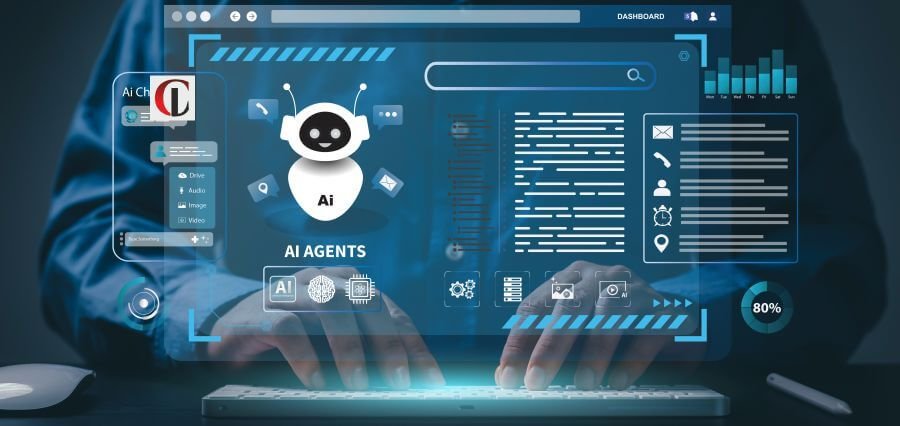Influential learning and development(L&D) professionals have been leading the way in transforming organizational cultures and enabling people to achieve their full potential for many years. They stress the need for ongoing learning, flexibility, and the planned adoption of new technologies to create growth. Through the combination of innovation and human understanding, L&D professionals are responsible for both individual and organizational change. Their capacity to craft effective learning strategies, build inclusive spaces, and foster resilience enables companies to navigate a constantly changing environment. Individuals such as Madhuri Kumar illustrate how intentional career shifts and dedication to education can result in revolutionary leadership within the corporate sector.
An Unscripted Journey of Purpose
In her career, Madhuri has held senior executive leadership roles as Global Head of Talent Management in multiple corporations. But her career journey has not been traditional by any means. And yet her path provides a roadmap for those in transition, searching for purpose, and claiming their voice as a leader. She describes it as “an accidental career,” but beneath that understated term is a compelling narrative—one of intentional education, bold decisions, and a relentless drive for impact.
Her path crosses continents, sectors, and functions—academia to oil and gas, digital transformation to human capital strategy. Every transition, though unexpected, was driven by curiosity, grit, and the courage to take leaps. For Madhuri, the common thread is straightforward: purposeful work that changes people and organizations.
From India to Texas
Reinventing Through Learning Madhuri’s first defining pivot began with a major relocation. Born and raised in India, she moved to the United States with her husband, who had taken a new role in the energy sector. With a young child in tow and no clear roadmap ahead, she found herself at a professional crossroads.
“I had no idea what I was going to do next,” she remembers. And in that uncertainty, she found opportunity. The University of Texas at Austin—one of the nation’s top academic institutions—was literally in her backyard. Madhuri decided to earn a Master’s degree in Adult Learning, a decision that served as a springboard for her future.
Education not only filled her with information; it transformed her identity. With her degree, she ventured into the realm of Learning and Development (L&D) as education itself was being disrupted. The early 2000s were a period of digital explosion, and higher education was not far behind.
A Decade in Academia: Driving Digital Transformation
At the University of Houston’s Bauer College of Business, Madhuri was at the cutting edge of innovation. In nearly a decade, she spearheaded initiatives in digitizing undergraduate and graduate business programs. Working closely with visionary faculty, she assisted in the development of transformational curriculum that equipped students for a fast-globalizing and digitized world.
“Work was innovative and stimulating. It was a once-in-a lifetime opportunity,” she recalls. Her academic stint wasn’t merely about content transmission—it was about designing systems that would shape the future of business education. This phase also enhanced her knowledge in organizational design and learner engagement—abilities that would become critical in her subsequent roles.
The Second Pivot: Joining Corporate America
Her next career turn happened out of the blue. One of her former colleagues, who was now part of General Electric’s Oil & Gas business, called with a chance to re-engineer technical training programs for their international growth in Asia and Latin America. Corporate America was terra incognita. Yet Madhuri agreed.
The curve was steep—but so was the potential. She guided a multidisciplinary team of engineers, learning designers, and business strategists to turn technical content into scalable training solutions. The effort became a multi-million-dollar business line and made GE’s Oil & Gas business a world leader in workforce readiness. More importantly, it was Madhuri’s first major exposure to the complexities of global operations, cross-cultural learning strategies, and market-driven innovation.
The Third Pivot: Human Resources and Enterprise Change
Her transition into HR began with a transformation initiative at Halliburton. There, she worked to streamline learning systems, align HR leadership development with enterprise goals, and enhance HR capability across geographies.
This period of her career found her assuming progressively more senior HR positions in a variety of industries—healthcare, nonprofit, technology, and energy. Each was unique, yet a consistent thread remained: the necessity for change, strategy, and people-centric leadership.
“I was consistently called in to close capability gaps or assume freshly created leadership roles,” she adds. These positions needed not merely technical expertise, but also capacity to shape culture, build teams and alignment, and achieve growth in a context of complexity.
Building Leadership from the Inside Out
Madhuri’s leadership style is rooted in clarity, empathy, and empowerment. She believes the work of a leader is not to gather followers, but to grow more leaders. This philosophy, she says, is essential for scaling impact.
Her credo—”More Yoda, less Super(wo)man”—expresses her faith in collective brilliance rather than heroic individualism. She wants to create herself out of a job by setting up teams which are sustaining themselves, creative, and resilient even without the key leader.
Creating clarity is at the core of her style. “To be clear is to be kind,” she might say. Clarity and transparency in her leadership style equals direction, accountability, feedback, and clear expectations particularly vital with complex organizations in change.
Getting a Voice in the Room
Madhuri encountered an issue all too common among women and immigrants in the business world early in her career: not being heard.
“The frustration was real,” she says. But rather than pulling back, she observed the leaders who were heard—those who commanded respect by presence, preparation, and conviction. She looked for mentors, requested input, and consistently refined her communication skills.
“I learned that both ‘who’ you know and ‘what’ you know count,” she says. Now, she spends as much time on relationship building as she does on strategic planning.
Rooted in Resilience: Lessons from Early Life
Much of Madhuri’s strength as a leader comes from lessons learned early in life. As a child, she moved often—attending six schools in different cities due to her father’s career. These transitions taught her adaptability, curiosity, and emotional agility.
She took those qualities into adulthood. To Madhuri, success isn’t measured in titles or milestones, but in persistence. “If I feel I am adding value, helping others thrive, and making a space better than I found it, that is success to me.”
Defining Impact: A Legacy of Culture Change
One of the most defining moments in Madhuri’s career occurred at a national nonprofit focused on curing Type 1 diabetes. Tasked with driving a culture transformation, she launched a two-day leadership workshop for the top 100 executives.
Months of preparation led to a compelling session that set off a tide of activation throughout the enterprise. Each executive pledged to implement it in their units. The program went to 100% of staff over the subsequent months, driving company-wide change. The CEO came up to her and declared, “Madhuri, this will be your legacy here.” It was a moment that refocused her mission: purposeful work that creates lasting impact.
The Growth Imperative: Learning as a Leadership Approach
Madhuri is inherently a lifelong learner. Following master’s at UT Austin, she did a doctorate in Human Performance Improvement from Capella University and recently a Global CXO program equivalent to an Executive MBA from Wharton School.
She continues to teach, mentor, and serve on non-profit boards. These activities enable her to remain plugged into up-and-coming trends, stretch her thinking, and provide back to the community. They also prevent her from becoming siloed within her corporate position. “I deliberately get out of my bubble,” she says. “That’s where learning actually occurs.”
Future-Proofing: AI, Strategy, and Human Capital
Madhuri is presently investing in three key areas:
Designing a Leadership Fitness Curriculum: She is designing a new executive learning journey aimed at equipping leaders to work through polarities, ambiguity, and complicated stakeholder landscapes. “We used to emphasize a core set of leadership competencies,” she says. “But the future requires leaders with the ability to think in systems and work with paradoxes.”
Learning AI in Human Capital: Madhuri is fast upskilling herself within artificial intelligence, specifically within its uses across HR and L&D. She thinks AI will have a deep influence on all elements of the employee experience—be it learning paths or performance management.
Giving Back Through Mentorship and Service: Whether through teaching, mentoring, or nonprofit board positions, she is dedicated to helping others rise as she rises. “It’s about paying it forward,” she states, “and giving back to something greater than myself.”
Looking Ahead: The Next Transformation
For one who has remade herself several times, the question “What’s next?” is more of an invitation than a destination. Madhuri is geared up for her next challenge—preferably one demanding fearless thinking, organisational change, and an opportunity to create something meaningful from scratch.
She looks for spaces where innovation is not merely encouraged but imperative. “I never forget that if you don’t innovate, you die,” she says. “We all must be willing to disrupt ourselves and evolve if we want to remain relevant.”
An Accidental Career, A Deliberate Legacy
What started as an inadvertent journey has turned into a masterclass in intentional leadership. Madhuri Kumar’s tale reminds us careers don’t have to be a direct line—and that’s just fine. What’s important is how we arrive, what we decide to study, and how we give back along the way.
From her early beginnings in education to her present position as a global HR executive, Madhuri has left behind a track record of change wherever she has been. Her legacy is not one of titles or initiatives—it’s one of people, advancement, and the unassuming bravery to just keep saying “yes” to whatever comes after.





